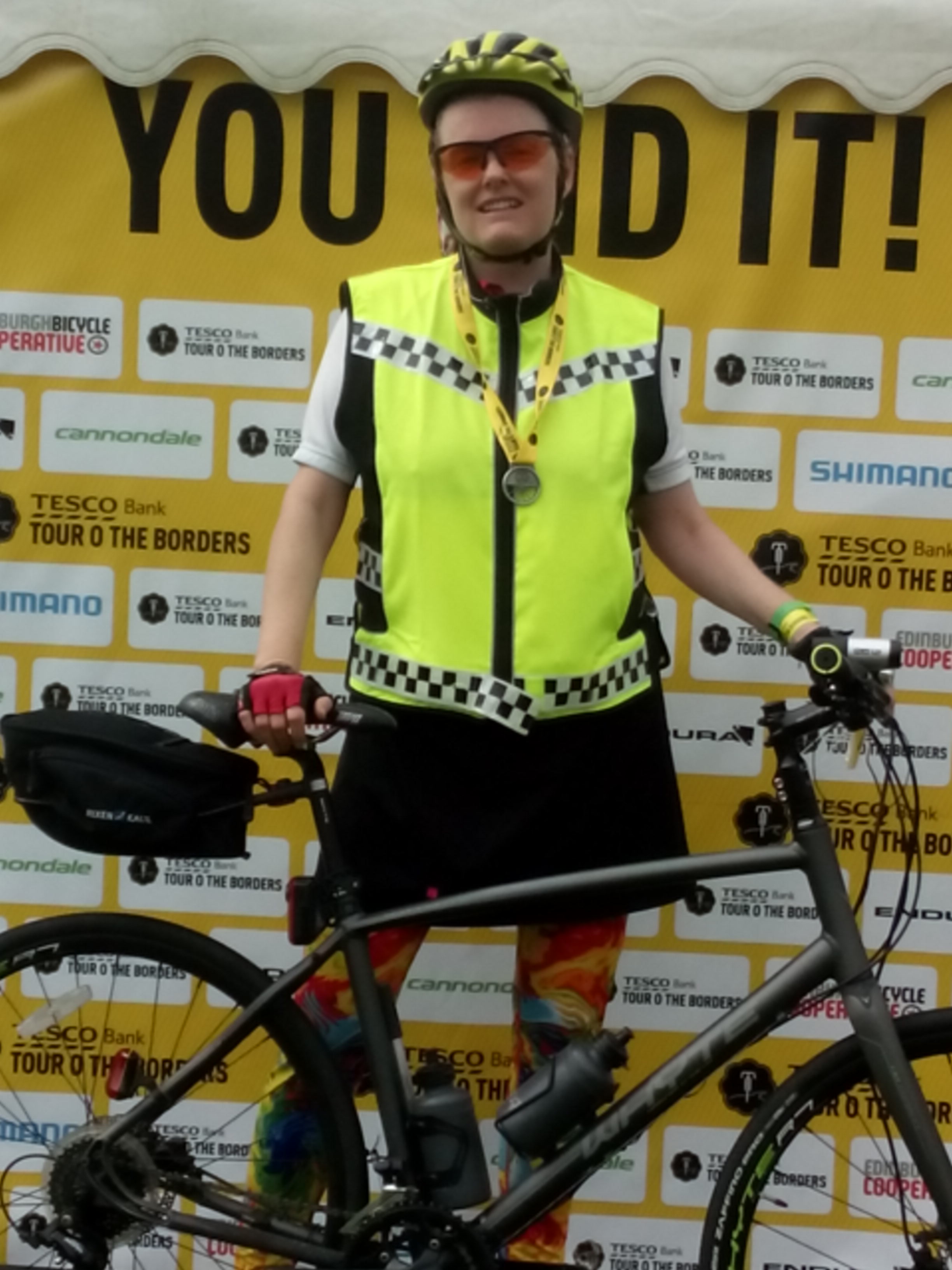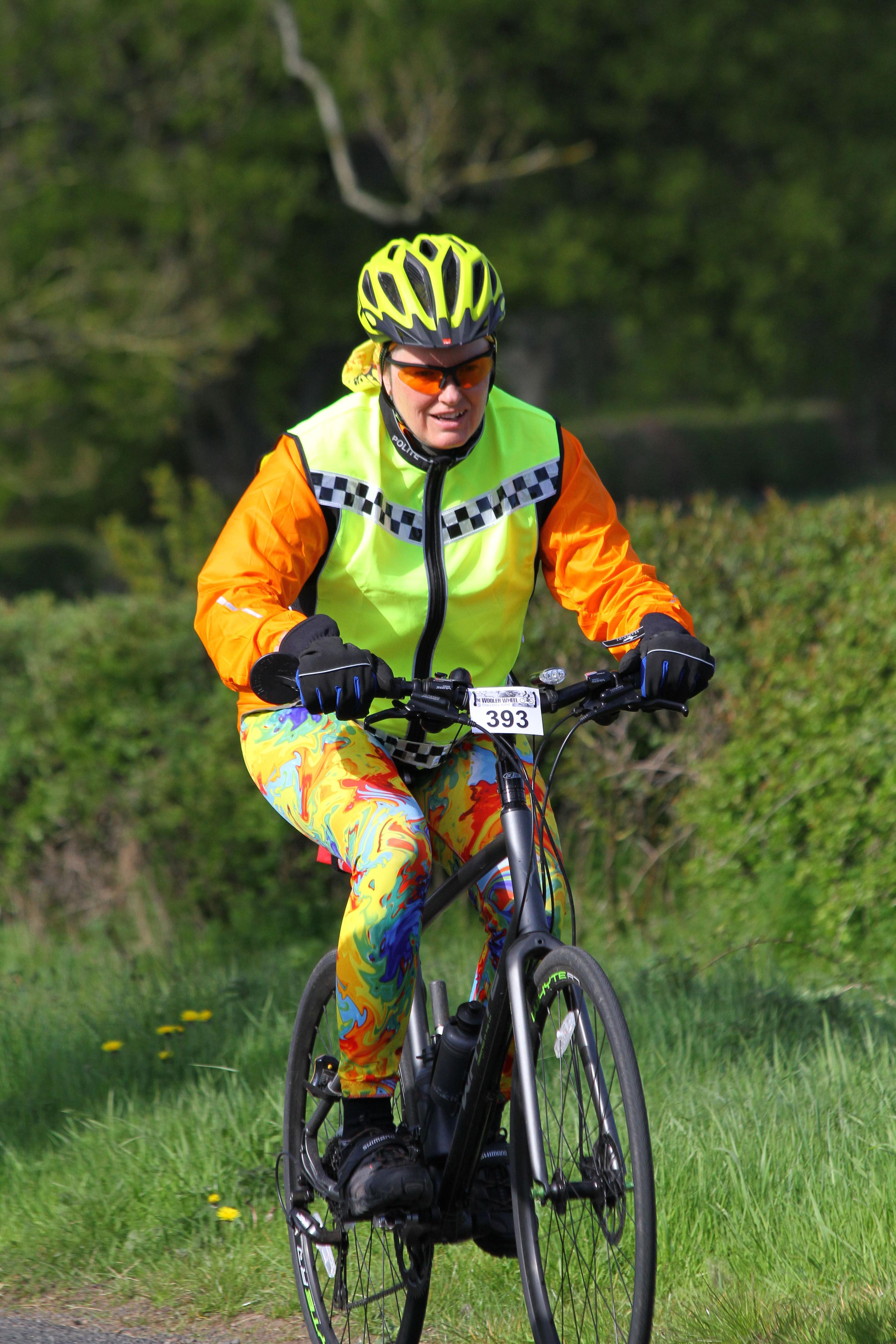15/12/2017
Current justice system for vulnerable road users doesn’t work


The victim of a road traffic collision is joining the campaign to change the law after her experience left her battered and bewildered by a system heavily weighted in favour of the car driver and feeling worthless.
Cyclist,
Jennifer Wallace, spent her 49th birthday in Intensive care after a
78-year-old driver caused her to fall off her bike. Jennifer
sustained ten broken bones in her neck and spine, fractured ribs, a
collapsed lung and a significant head injury.
It was a life-threatening event; yet, because Jennifer’s injuries
meant that she has no recollection of the accident, the Procurator
Fiscal determined that a criminal prosecution could not be pursued
and the driver’s insurance company persistently claimed the
collision was her fault.
The accident took place on 21st April 2015 and only after an
18-month emotional roller coaster has her road to recovery led to
some level of justice through a civil action.
Jennifer is now supporting Brenda Mitchell of Cycle Law
Scotland (CLS), who took up and won her case, in the fight to
see presumed
liability introduced into Scots Civil Law. Under a system of
presumed liability, to avoid paying compensation, the driver’s
insurer would have to establish negligence on Jennifer’s part
rather than placing the onus on Jennifer to establish negligence on
the part of the driver. This was especially difficult for Jennifer
as her head injury affected her memory. Presumed liability in Civil
Law would result in Jennifer’s case and others like hers reaching
a swift conclusion, saving the insurance industry thousands of
pounds in unnecessary litigation.
Compensation for
much-needed medical treatments would be paid out without dispute
and the adversarial nature of the current fault-based system would
be replaced with a far more mature and compassionate system of
support for vulnerable road users injured in road traffic
collisions.
Jennifer’s accident took place on the B6461 in the Scottish
Borders. Jennifer fully expected the police to charge the driver
but that didn’t happen for a number of months and only after a
second police investigation. No evidence and only partial witness
statements were taken at the scene of the accident and the initial
police report concluded that Jennifer’s injuries were ‘slight’. No
statement was taken from Jennifer until the time of the second
police investigation.
But, even accepting the limitations of the police investigations,
the behaviour of the insurance company was arguably even more
stressful for Jennifer. For four months, the driver’s insurance
company, Ageas Insurance, persistently refused to admit any
liability. Initially, it refused to pay for physical and
psychological treatments to help in Jennifer’s recovery and when
they did, only for a limited period. When the case was eventually
transferred to the insurer’s solicitors in January 2016, Jennifer
was given an ultimatum to accept a settlement. It was refused as
inadequate due to the nature of her injuries and ongoing
treatments.
Proceedings were raised by CLS on Jennifer’s behalf in September
2016. Ageas Insurance stated Jennifer had fallen as a result of
hitting a pothole, ignoring the fact that at the time their driver
had been overtaking Jennifer and was clearly far too close. Before
the case reached court, the insurance company made an offer to
settle. The amount was twice the original sum proposed and
represented the full value of the claim.
Brenda Mitchell commented:
“Jennifer is delighted with the settlement, but the past 18 months
have highlighted the shortcomings of the current fault-based
system.
“Jennifer could not recall the accident circumstances due to her
serious head injury. The initial police investigation was woeful.
Whilst there may have been grounds for reasonable doubt in a
criminal prosecution, the issue of negligence in Civil Law was much
stronger and this case should have been dealt with at a much
earlier stage.
“Because it is up to the cyclist to prove, on balance of
probability, the driver’s negligence, it is often the case that a
large insurer will sit back and say “prove it” and in cases where
memory is lost through injury, it places undue pressure and stress
on those least able to bear it.
“A system of presumed liability in Civil Law, which puts the
vulnerable victims of road traffic collisions first, would remove
to a greater extent the adversarial nature of claims, speed up the
process and ultimately lead to less litigation.
“It seems
only reasonable to say to large insurance companies, compensate
injured cyclists unless you can prove they are at fault. In
Jennifer’s case, the insurer must have decided Jennifer was not to
blame but that took far too long and pressure was brought to bear
with low offers and ultimatums. It’s not the way we should treat
the injured individual.”
Jennifer said:
"I feel that the whole system is weighted in favour of large
insurance companies. The process is simply not balanced and my
experience was like being in a nightmare. I was the one hurt (and
seriously), yet I was being made to feel worthless as a human being
by the police and the insurers.
“A change in approach is needed. Introducing a system of presumed
liability into Civil Law could be the catalyst for all road users
to think differently when they get into their cars, and for
everyone to think about the person and the injuries caused, not
about attributing blame.”
Despite the setback, Jennifer is now pain-free and, with the
immense support of her family and friends, has been determined to
get back on her replacement bike. She began cycling again earlier
this year and since then, has cycled more than 1,700 miles,
including a 140-mile Coast to Coast charity ride to raise more than
£1,000.
The Road
Share campaign has set up a steering group to take things
forward.
To find out more about the individual members of the Steering group and its overall remit.
The campaign has attracted Cross Party support at Holyrood. See who is supporting, who is undecided and who doesn't support the campaign.
The
Campaign has successfully attracted a number of celebrity
supporters who feel strongly about the introduction of presumed
liability and have given their support.
Contact us via email at info@roadshare.co.uk
Copyright 2014 © Road Share. All Rights Reserved.
Please Visit Us Again | Thankyou